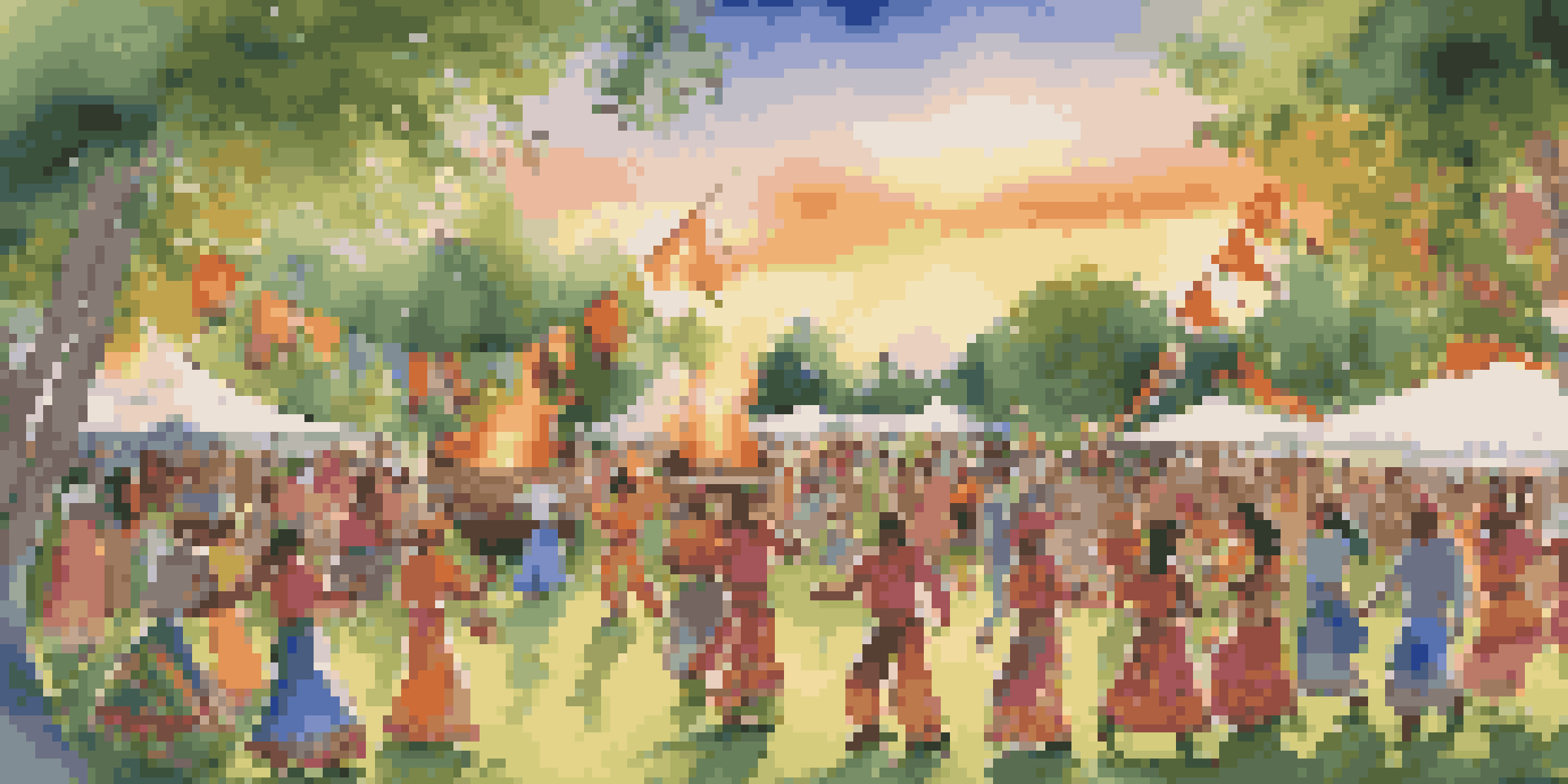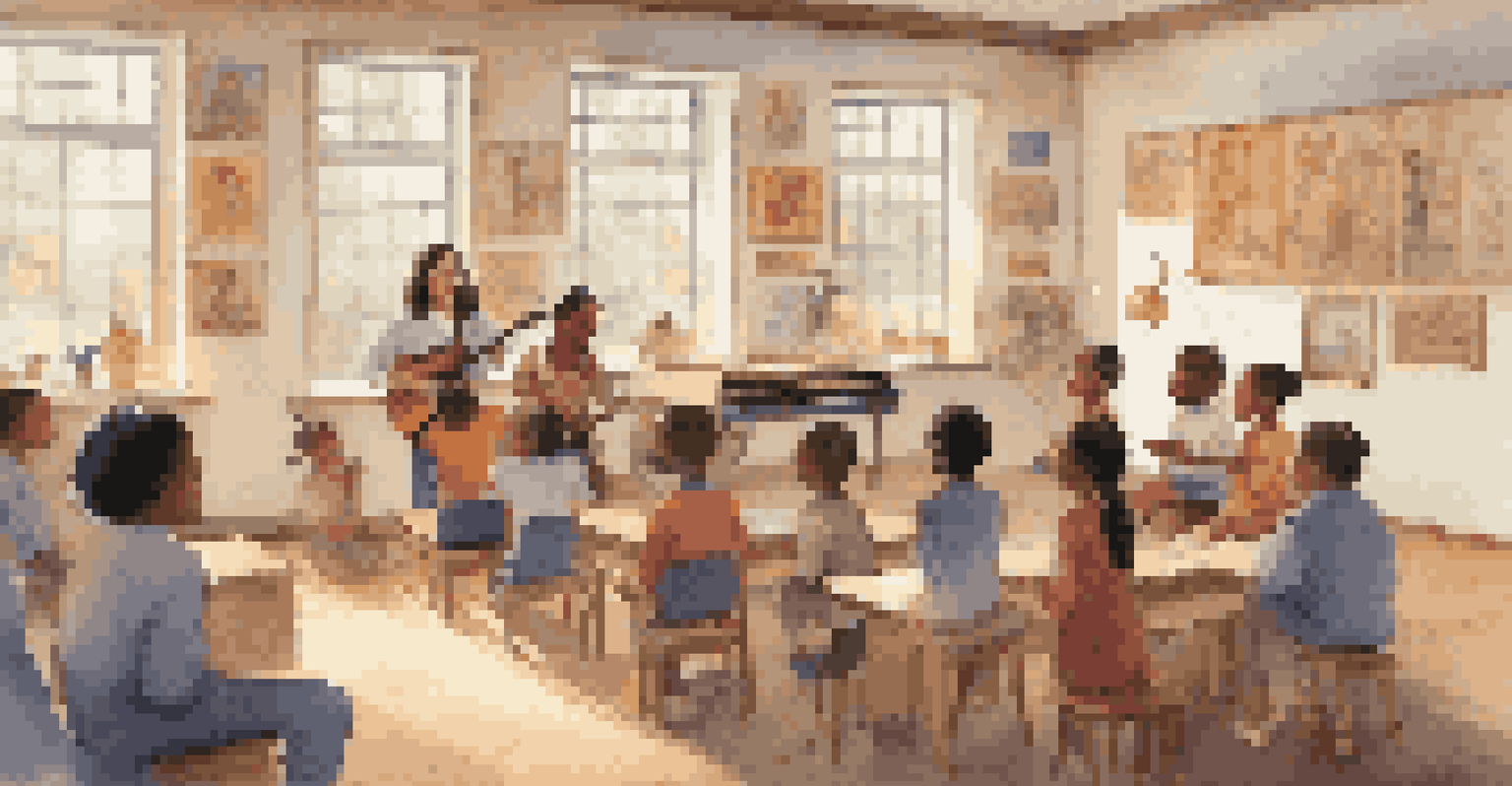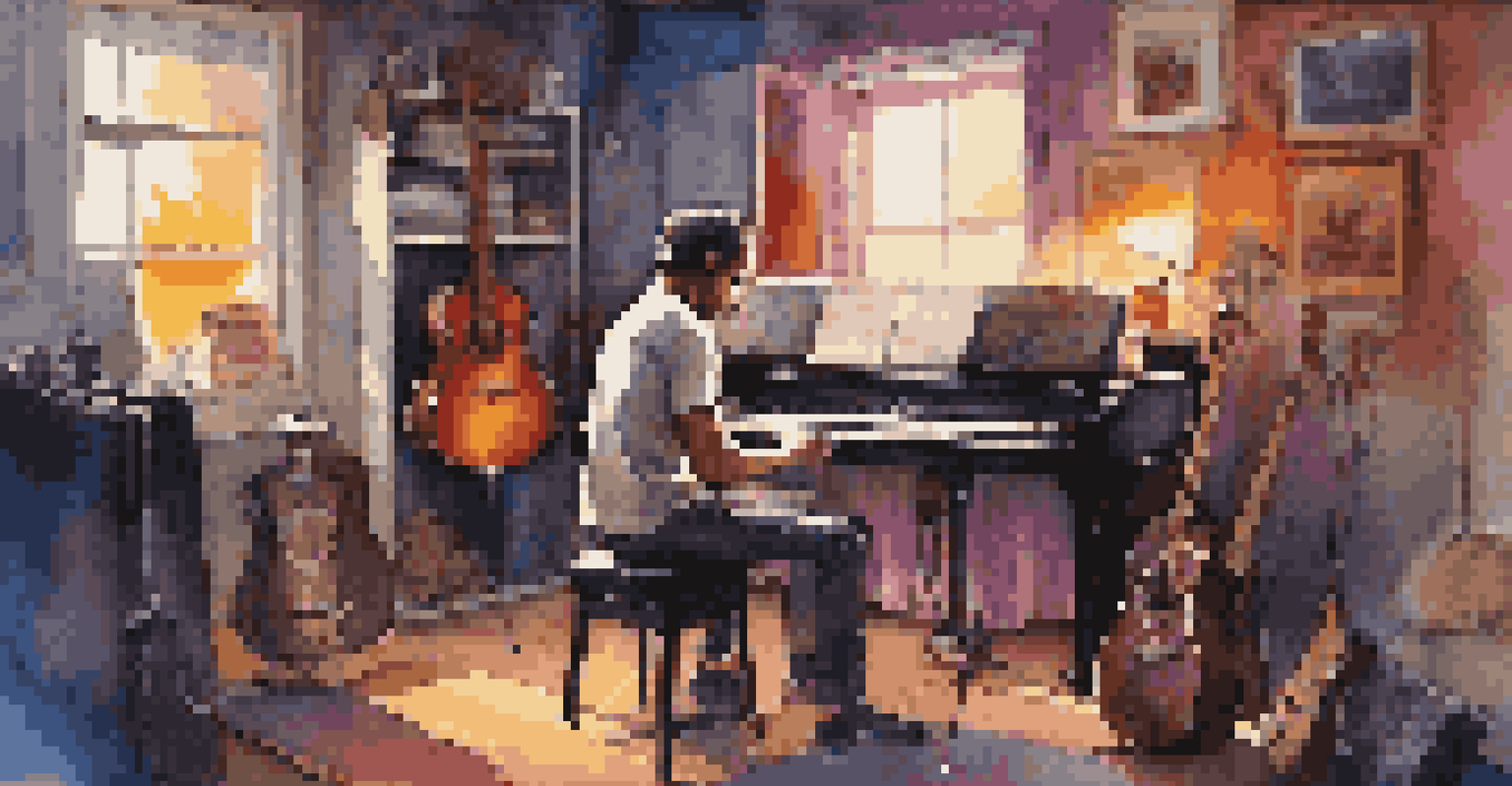The Relationship Between Music and Cultural Memory Preservation

Understanding Cultural Memory and Its Importance
Cultural memory refers to the shared pool of knowledge and information within a community. It’s not just about history; it includes traditions, values, and collective experiences that shape a society's identity. This memory is crucial for maintaining a sense of belonging and continuity across generations.
Music can change the world because it can change people.
Think of cultural memory as a tapestry, where each thread represents a different story, belief, or experience. When these threads are woven together, they create a rich narrative that defines a culture. Without this shared memory, communities risk losing their unique identities and the lessons learned from their past.
As societies evolve, the preservation of cultural memory becomes vital to ensure that future generations understand their heritage. Music, as a powerful form of expression, plays a significant role in this preservation process.
The Role of Music as a Memory Trigger
Music has a unique ability to evoke emotions and memories, often transporting us back to specific moments in time. This phenomenon is largely due to the way our brain processes music, linking it with personal experiences and emotions. For instance, a particular song might remind you of a childhood event or a significant life milestone.

When communities use music to tell their stories, they create a lasting connection with their cultural identity. This connection helps individuals recall shared experiences and reinforces the collective memory of the group. For example, national anthems serve not only as symbols of pride but also as reminders of a nation's history and struggles.
Cultural Memory Shapes Identity
Cultural memory encompasses shared knowledge and experiences that define a community's identity and continuity across generations.
In this way, music acts as a bridge between the past and present, ensuring that cultural memories are not only preserved but also celebrated and passed down through generations.
Folklore and Traditional Music in Memory Preservation
Traditional music forms, such as folk songs and chants, are often rooted in the history and customs of a culture. These musical styles encapsulate stories of ancestors, significant events, and moral lessons, serving as tools for teaching and remembering. For instance, many Indigenous cultures use songs to pass down knowledge about their land and traditions.
Without music, life would be a mistake.
By incorporating folklore into their musical practices, communities can keep their history alive and relevant. Such music often embodies the values and beliefs of a culture, reinforcing a sense of pride and identity. This is why festivals celebrating traditional music are vital for cultural continuity.
As these songs are sung and shared, they become a living memory, allowing people to connect with their past while fostering a sense of community in the present.
Modern Music and Its Role in Cultural Narratives
Contemporary music genres, such as hip-hop and pop, often reflect societal issues and collective experiences, making them vital for cultural memory. Artists use their platforms to address political, social, and personal themes, resonating with listeners and shaping public discourse. For example, songs about social justice movements can ignite awareness and inspire collective action.
These modern narratives can effectively capture the zeitgeist of an era, ensuring that the struggles and triumphs of a generation are documented through song. As a result, music becomes a vehicle for storytelling, illustrating the evolution of cultural identity over time.
Music Connects Past and Present
Music serves as a powerful medium for preserving cultural memories, evoking emotions and stories that link individuals to their heritage.
Moreover, the accessibility of music in today's digital age allows for a broader audience to engage with these narratives, fostering a global understanding of diverse cultural memories.
Globalization and the Evolution of Cultural Memory
As globalization continues to shape our world, cultures are increasingly influenced by one another. This blending can lead to the creation of new musical styles that reflect a fusion of traditions, thus evolving cultural memory. For instance, genres like Reggaeton merge Latin rhythms with hip-hop, showcasing the interconnectedness of global music.
While this mingling of cultures can enrich musical landscapes, it also raises questions about authenticity and preservation. Communities may struggle to maintain their unique cultural identities amidst the overwhelming influence of mainstream music trends. This tension highlights the importance of intentional cultural memory preservation.
Ultimately, finding a balance between embracing global influences and honoring traditional roots is essential in preserving cultural memory for future generations.
Music Education as a Tool for Memory Preservation
Teaching music within cultural contexts can significantly enhance cultural memory preservation. Music education programs that emphasize traditional songs and practices help students connect with their heritage. When children learn songs that reflect their culture, they are not only learning music but also the stories and values that accompany it.
Such educational initiatives instill a sense of pride and belonging in young individuals, reinforcing their connection to their cultural roots. This is especially important in multicultural societies, where diverse backgrounds contribute to a rich tapestry of cultural narratives.
Education Preserves Cultural Heritage
Integrating music education with cultural contexts fosters pride and belonging, ensuring that traditions and stories are passed down to future generations.
By integrating music education into community programs, we can ensure that cultural memories continue to thrive and evolve, fostering a deeper appreciation for the diverse musical heritage around us.
The Future of Music and Cultural Memory Preservation
Looking ahead, the relationship between music and cultural memory will likely continue to evolve. As technology advances, new platforms for music sharing and creation will emerge, allowing cultures to reach wider audiences. This increased accessibility can enhance the preservation of cultural memories while also introducing new challenges in maintaining authenticity.
In this dynamic landscape, it's crucial for communities to remain proactive in safeguarding their musical heritage. Initiatives that encourage the documentation and sharing of traditional music can play a vital role in this process. Additionally, fostering collaborations between artists from different cultures can lead to innovative expressions of shared memories.

Ultimately, as we navigate the future, music will remain an essential thread in the fabric of cultural memory, reminding us of our histories while shaping our collective identity.